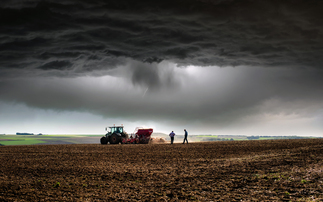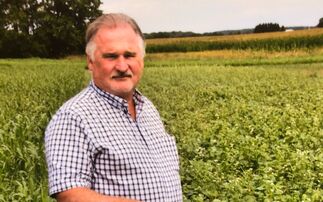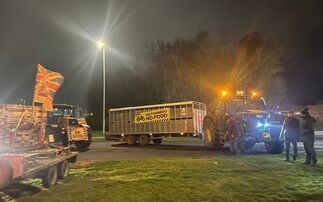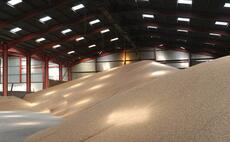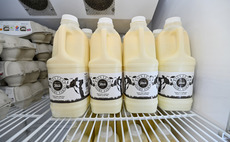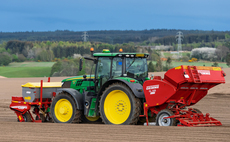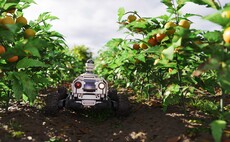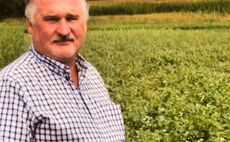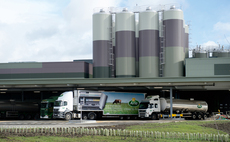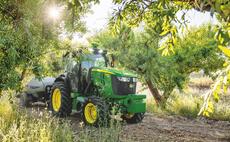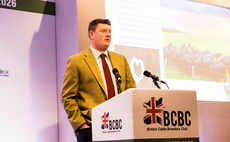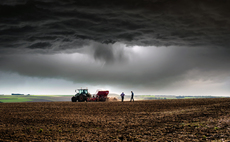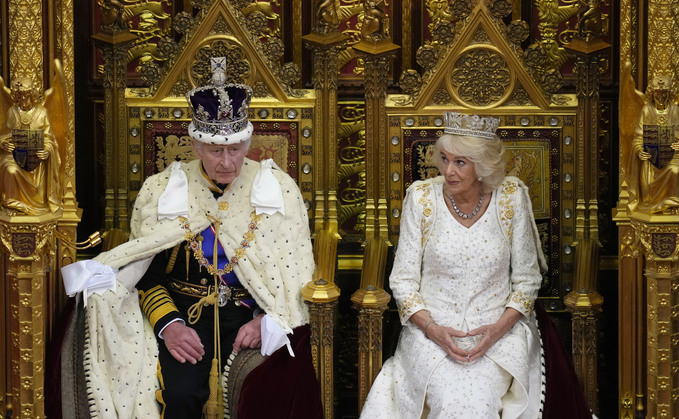
King Charles delivered his first speech as monarch at the state opening of parliament
King Charles has delivered his first speech to parliament as a reigning monarch outlining the Government's policies for the upcoming year and the role played by agriculture and farmers.
It was the first speech delivered by a King in 72 years since the reign of King George VI - the current monarch's grandfather - after the death of Queen Elizabeth II last September.
The King delivered the speech in the House of Lords on Tuesday (November 7) to mark the start of the new parliamentary year which sets out the Government's agenda for 2023 and 2024.
Prime Minister Rishi Sunak provided an introduction prior to the speech where he outlined how the Government would provide a better future for Britain by 'growing the economy, strengthening society, keeping people safe and promoting the UK's national interests on the global stage'.
See also: King Charles champions British lamb
Listen to how the Royal Countryside Fund truly helps the rural community:
Mr Sunak added: "We are introducing new legislation to grow the economy, increase energy security, bring in investment, create jobs, improve skills and boost our brilliant innovators and entrepreneurs - helping people everywhere seize new opportunities which will make their lives better.
"This King's speech delivers change. Change in our economy.
"Change in our society. Change in our communities.
"It takes long-term decisions for a brighter future."
See also: King Charles rebrands farming charity
In the speech, King Charles said the UK faced ‘long-term challenges' but the Government's priority would be to make the ‘difficult but necessary long-term decisions to change this country for the better'.
He confirmed the Government would prioritise 21 bills over the next coming year including criminal justice, trade, the environment and work.
Not everyone, however, was impressed with Government policies in the King's speech.
Responding to the King's speech, Labour Leader Sir Keir Starmer said the Conservative Government ‘cannot deliver the change people are crying out for'.
See also: King's coronation special: Voice of rural communities and small family farms
The Scottish National Party said Westminster could have delivered support for families during this cost-of-living crisis but instead have ‘sat on their hands' with renewed calls to devolve power to Scotland.
Mark Drakeford, First Minister of Wales, told Senedd Members there had been 'not a single mention of Wales in the speech'.
Mr Drakeford added: "There is nothing in the programme which is going to make the lives of people here in Wales better, and it shows a government which has no ambition for the future."
Leader of the Liberal Democrats Ed Davey said the King's Speech had demonstrated a Government which had ‘run out of ideas' and called for a general election to ‘put people out of their misery'.
The mental health charity Mind said it was disappointed the Government had ‘failed to prioritise mental health' which was not mentioned in the King's Speech.
See also: Over The Farm Gate Podcast - Coronation Special : The King of the countryside
But what role did farming and agriculture play in the King's speech?
These were the main talking points where farming and agriculture were mentioned:
1) Benefits to dairy farmers from exports
Dairy farmers were told they will benefit from reduced tariffs on cheese and butter exports to Canada, Chile, Japan and Mexico under The Trade (Comprehensive and Progressive Agreement for Trans-Pacific Partnership) Bill. The Government said the agreement would deliver new export opportunities for UK farmers while safeguarding UK food safety standards.
2) Ending live exports of livestock and reinforcing the UK's high animal welfare standards
The Government's Animal Welfare (Livestock Exports) Bill would ban the export of cattle, sheep, goats, pigs and horses for slaughter and fattening from Great Britain. The Government said the Bill would ‘stop unnecessary stress, exhaustion and injury caused by exporting live animals' on long journeys for slaughter and fattening.
The Government said it would ensure animals are slaughtered domestically to maintain its ‘high animal welfare standards'. The Animal Welfare (Livestock Exports) Bill would bring a permanent ban into effect and prevents any future exports of live animals - which will be allowed to continue in other circumstances - while reinforcing the UK's position as a ‘world leader on animal welfare, boosting the value of British meat and helping to grow the economy'.
3) £4m to support farmers under the Smaller Abattoir Fund
The Government said it would support farmers to improve animal welfare conditions through funding annual vet visits for all livestock farmers, new equipment and upgraded farm infrastructure. Small abattoirs would benefit from a £4 million Smaller Abattoir Fund, opening by the end of 2023 - designed to improve animal health and welfare and help sustain businesses which provide a 'valued service to farmers and reduce journey times for livestock to slaughter'.
4) New legislation clearing the way for the introduction of 'driverless' farm machinery
The Automated Vehicles Bill would set the threshold for self-driving vehicles in law. Only vehicles which can drive themselves safely and can follow all road traffic rules without the need for a human to monitor or control the vehicle to maintain that level of safety will be classified as self-driving and allowed on our roads. The Government said it would hold companies accountable once vehicles are on the road, as well as investigating and learning from incidents.
5) Promises to lead action on tackling climate change and biodiversity loss, support developing countries with their energy transition, and hold other countries to their environmental commitments
The Government said the UK has cut emissions further and faster than any other major economy and is proud to be a world leader in reducing emissions, but urged more can be done. The Government said it has one of the world's most ambitious targets to cut emissions by 2030 and deliver net zero in 2050.
See also: Prince William launches new mental health strategy to support farmers on Duchy of Cornwall estate









